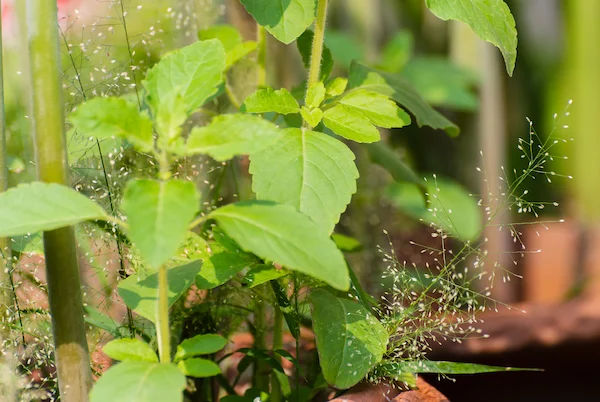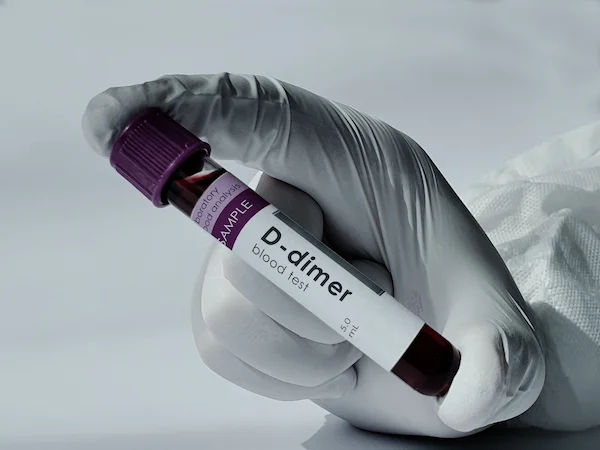Natural Blood Thinners Safe Alternatives and Research Insights
Learn about natural blood thinners, what research shows, and how to use them safely for heart health. Understand risks, interactions, and smart alternatives.


Introduction
Blood clots can cause serious problems like heart attacks, strokes, or deep vein thrombosis. That’s why many people search for “natural blood thinners” to support heart health and reduce clot risk without prescription drugs. It’s a smart question—but one that needs careful, evidence-based answers. Some foods and supplements can modestly affect how your blood clots, but they’re not substitutes for prescribed anticoagulants. And some “natural” options can increase bleeding risk or interact with medications.
In this guide, you’ll learn which choices have research behind them, who should avoid them, and safer ways to support heart health. Always talk with your healthcare professional before starting any supplement or making big diet changes—especially if you take blood thinners or have a bleeding risk.
What “Blood Thinners” Actually Are
Doctors use the term “blood thinners” to describe two main types of prescription medicines:
• Antiplatelet drugs (like aspirin, clopidogrel) help prevent platelets from sticking together.
• Anticoagulants (like warfarin, apixaban, rivaroxaban, dabigatran) slow down the body’s clotting proteins.
Natural options can sometimes have mild antiplatelet or anticoagulant effects. However:
• They are not as reliable or well-studied as prescription therapies.
• They can interact with medications and increase bleeding risk.
• They should never replace prescribed treatment unless your clinician says so.
Who Might Consider “Natural Blood Thinners”?
Natural options are most appropriate as part of a heart-healthy lifestyle for people who do not need prescription anticoagulants. If you have a medical reason to prevent clots—such as atrial fibrillation, a mechanical heart valve, a past clot, or a recent stent—your doctor’s therapy plan comes first. For healthy individuals wanting to support heart health, diet and lifestyle approaches are the safest, most evidence-based place to start.
Natural Options with Research—and What to Know
Below are commonly discussed foods and supplements, the level of evidence behind them, and key safety notes. Importantly, “natural” does not always mean “safe.”
Omega-3 Fatty Acids (EPA/DHA)
• What they are: Healthy fats found in fatty fish (salmon, sardines, trout), and in fish oil supplements. Plant sources like flax and chia provide ALA, which converts only modestly to EPA/DHA.
• What research shows: Eating fish regularly supports heart health, and fish oil can lower triglycerides. Omega-3s may have mild antiplatelet effects, but are not a substitute for anticoagulation. Large studies show mixed results for heart attack or stroke prevention, though certain prescription omega-3s help those with high triglycerides.
• Safety notes: Generally well tolerated. May increase bleeding risk when combined with anticoagulants or before surgery—discuss with your clinician.
Garlic (Allium sativum)
• What it is: Culinary herb used fresh or as extracts or capsules.
• What research shows: Some studies show garlic reduces platelet stickiness. Effects are stronger with supplements than food.
• Safety notes: High-dose garlic supplements can increase bleeding risk with warfarin, DOACs, aspirin, or clopidogrel. Culinary use is safe for most people.
Ginger (Zingiber officinale)
• What it is: Spice used fresh or dried; available in capsules and teas.
• What research shows: Lab studies suggest antiplatelet activity, but human evidence is limited.
• Safety notes: High doses may increase bleeding risk with blood thinners; culinary use is safe.
Turmeric/Curcumin
• What it is: Turmeric is a spice; curcumin is its main active compound.
• What research shows: Curcumin has anti-inflammatory effects and mild antiplatelet activity, though evidence for clot prevention is limited.
• Safety notes: High-dose supplements can interact with anticoagulants; culinary use is safe.
Ginkgo Biloba
• What it is: Herbal supplement from the ginkgo tree.
• What research shows: Affects platelet function; bleeding reports exist when combined with blood thinners.
• Safety notes: Avoid with anticoagulants unless approved by your clinician.
Vitamin E
• What it is: Fat-soluble vitamin found in nuts, seeds, and oils; available as a supplement.
• What research shows: High doses can increase bleeding by affecting vitamin K–dependent clotting.
• Safety notes: Doses above 400 IU/day may increase bleeding; food sources are safe.
Nattokinase
• What it is: Enzyme from natto, a fermented soybean food.
• What research shows: Early studies suggest fibrin breakdown, but strong evidence is lacking.
• Safety notes: May increase bleeding risk; avoid without medical guidance.
Bromelain
• What it is: Enzyme from pineapple stem.
• What research shows: Limited human data; may affect platelet aggregation.
• Safety notes: Can raise bleeding risk, especially with anticoagulants.
Alcohol (Including Red Wine)
• What research shows: Alcohol affects clotting and raises bleeding risk.
• Safety notes: Not recommended as a “natural blood thinner.” Stay within medical and low-risk limits.
Consult Top Specialists
Important Cautions with “Natural Blood Thinners”
Keep in mind these cautions:
• Do not combine multiple supplements that affect clotting.
• Stop supplements 1–2 weeks before surgery (confirm timing with your doctor).
• Watch for signs of bleeding such as bruising, nosebleeds, or blood in stool.
• If you take warfarin, keep vitamin K intake consistent—avoid large diet swings in leafy greens.
Everyday Choices That Safely Support Heart Health
• Eat a heart-healthy diet: Focus on vegetables, fruits, whole grains, beans, nuts, seeds, and fish. Choose unsaturated fats and limit trans and saturated fats, added sugars, and processed foods.
• Choose fish twice per week: Fatty fish like salmon or sardines offer omega-3 benefits.
• Be active: Aim for at least 150 minutes of moderate activity weekly plus strength training.
• Don’t smoke or vape: Tobacco increases clot risk and vessel damage.
• Manage blood pressure, cholesterol, and blood sugar: Follow medical advice and monitor regularly.
• Maintain a healthy weight and sleep: Both influence inflammation and cardiovascular function.
• Stay hydrated and limit alcohol: Dehydration thickens blood; moderation matters.
How to Use Supplements More Safely?
Here’s how you can use supplements more safely:
• Consult your clinician or pharmacist before starting any supplement—especially with blood thinners, NSAIDs, or bleeding disorders.
• Introduce one supplement at a time and observe effects.
• Prefer food-first strategies—culinary garlic, ginger, and turmeric are safest.
• Buy from reputable brands with quality testing.
• Always share your full supplement list with your medical team.
Who Should Avoid “Natural Blood Thinners”?
Here’s who should avoid natural blood thinners:
• People on prescription anticoagulants or antiplatelets (unless approved)
• Those with bleeding disorders or prior serious bleeding
• People scheduled for surgery or dental work
• Pregnant or breastfeeding individuals
• Those with liver or kidney disease
• Older adults at high fall or injury risk
Consult Top Specialists
Consult Top Specialists

Dr Abilash Jain
General Physician/ Internal Medicine Specialist
12 Years • MBBS,DNB(FM),MNAMS,FIAMS,CCGMG(GERIATRICS),DGM (GERIATRICS),PGCD(DIABETES,BOSTON UNIVERSITY),FID(DIABETICS UK)CCEPC(PALLIATIVE CARE),CCCC(CRITICAL CARE)
Visakhapatnam
Apollo Clinic Vizag, Visakhapatnam

Dr.sanchayan Mandal
Medical Oncologist
17 Years • MBBS, DrNB( MEDICAL ONCOLOGY), DNB (RADIOTHERAPY),ECMO. PDCR. ASCO
Kolkata
Dr. Sanchayan Mandal Oncology Clinic, Kolkata

Dr. E Prabhakar Sastry
General Physician/ Internal Medicine Specialist
40 Years • MD(Internal Medicine)
Manikonda Jagir
Apollo Clinic, Manikonda, Manikonda Jagir
(175+ Patients)

Dr. Ramalinga Reddy
General Physician
5 Years • MBBS MD General medicine
Bengaluru
PRESTIGE SHANTHINIKETAN - SOCIETY CLINIC, Bengaluru

Dr. Prabu P
Haematologist
29 Years • MBBS, MD(Gen.Med.)(JIPMER) , MRCP, Dip RCPath, FRCPath, CCT(U.K), Haemato - Oncology.
Chennai
Apollo Hospitals Greams Road, Chennai
(550+ Patients)
Consult Top Specialists

Dr Abilash Jain
General Physician/ Internal Medicine Specialist
12 Years • MBBS,DNB(FM),MNAMS,FIAMS,CCGMG(GERIATRICS),DGM (GERIATRICS),PGCD(DIABETES,BOSTON UNIVERSITY),FID(DIABETICS UK)CCEPC(PALLIATIVE CARE),CCCC(CRITICAL CARE)
Visakhapatnam
Apollo Clinic Vizag, Visakhapatnam

Dr.sanchayan Mandal
Medical Oncologist
17 Years • MBBS, DrNB( MEDICAL ONCOLOGY), DNB (RADIOTHERAPY),ECMO. PDCR. ASCO
Kolkata
Dr. Sanchayan Mandal Oncology Clinic, Kolkata

Dr. E Prabhakar Sastry
General Physician/ Internal Medicine Specialist
40 Years • MD(Internal Medicine)
Manikonda Jagir
Apollo Clinic, Manikonda, Manikonda Jagir
(175+ Patients)

Dr. Ramalinga Reddy
General Physician
5 Years • MBBS MD General medicine
Bengaluru
PRESTIGE SHANTHINIKETAN - SOCIETY CLINIC, Bengaluru

Dr. Prabu P
Haematologist
29 Years • MBBS, MD(Gen.Med.)(JIPMER) , MRCP, Dip RCPath, FRCPath, CCT(U.K), Haemato - Oncology.
Chennai
Apollo Hospitals Greams Road, Chennai
(550+ Patients)
More articles from General Medical Consultation
Frequently Asked Questions
1) Can natural blood thinners replace my prescription?
No. If your clinician prescribed anticoagulants or antiplatelets, do not replace them with supplements or foods. Natural options are not reliably strong or consistent enough and can be risky without medical guidance.
2) Is eating garlic or ginger safe if I’m on a blood thinner?
Culinary amounts in food are usually small and may be acceptable for some people. However, concentrated supplements can increase bleeding risk. Always ask your clinician, and avoid starting any supplement without approval.
3) Does fish oil increase bleeding?
At typical doses, fish oil alone doesn’t seem to cause major bleeding in most people. But it can add to bleeding risk when combined with anticoagulants or before surgery. If you’re on blood thinners or scheduled for a procedure, discuss fish oil with your care team.
4) What should I do about vitamin K if I take warfarin?
Be consistent. Don’t avoid leafy greens; instead, keep your intake steady from week to week so your clinician can dose warfarin appropriately. Tell your care team about any big diet changes.
5) How long before surgery should I stop supplements that thin blood?
Many clinicians recommend stopping supplements that affect clotting 1–2 weeks before surgery, but timing varies. Follow your surgeon’s specific instructions and provide a complete list of all supplements and medications.




_3.webp)